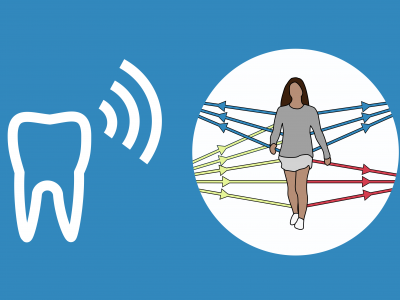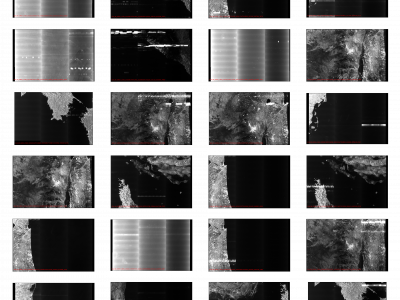Deep Learning
This project builds a length-versatile and noise-robust LoRa radio frequency fingerprint identification (RFFI) system. The LoRa signals are collected from 10 commercial-off-the-shelf LoRa devices, with the spreading factor (SF) set to 7, 8, 9, respectively. The packet preamble part and device labels are provided.
- Categories:
 1986 Views
1986 Views
Detection of impact craters on the surface of Mars is a critical component in the study of Martian geomorphology and the evolution of the planet. As one of the most distinguishable geomorphic units on the Martian surface, accurate determination of the boundaries of impact craters provides valuable information in mapping and research efforts. The topography on Mars is more complex than that of the moon, making detection of real impact crater boundaries a challenging task.
- Categories:
 24 Views
24 Views
We use industrial cameras to take images of steel wire ropes under different conditions, and use these wire rope images to train the U_Net network, and realize the semantic segmentation of the wire rope images by the U_Net network.
- Categories:
 762 Views
762 ViewsThe human gait is unique and so is the impact of a walking human on the propagation of wireless signals within a wireless network. Using appropriate pattern recognition techniques, a person can thus be identified just from a time series of Received Signal Strength (RSS) measurements. This dataset holds bidirectional RSS measurements recorded within a mesh network of four Bluetooth sensor devices. During the measurements, a total of 14 subjects walked individually through the setup. A total of more than 10,000 recordings are provided.
- Categories:
 641 Views
641 ViewsSynthetic Aperture Radar (SAR) satellite images are used increasingly more for Earth observation. While SAR images are useable in most conditions, they occasionally experience image degradation due to interfering signals from external radars, called Radio Frequency Interference (RFI). RFI affected images are often discarded in further analysis or pre-processed to remove the RFI.
- Categories:
 348 Views
348 ViewsRecently, a limited number of datasets that exist are used to detect errors in the printing process of the 3D printer. Limited datasets lead most researchers to dive into sensor data fault classification.
The dataset is captured and labelled before being fed to the DL model. The image dataset is captured in a time-lapse video mode with a 15-second duration for each printing process. Next, the time-lapse is used to extract around 50 images per video. In total, 2297 images containing four classes are collected.
- Categories:
 1983 Views
1983 Views
This data contains training and testing data for single-shot deflectometry generated by the deformable mirror. The training data has total of 4000 data with single input composite pattern Ic and four outputs (Dx, Dy, Mx, and My).
The test data contains a pre-trained model, a script for testing, and test images
- Categories:
 676 Views
676 Views
To enable intelligent vehicles and transportation systems, the vehicles and relevant systems need to have the ability to sense environment and recognize objects. In order to benefit from the robustness of radar for sensing, knowing how to use the radar system for effective object recognition is critical. Observing this, we in this paper propose a novel deep learning-aided object recognition system for radar systems by combining the You only look once (YOLO) system with a proposed object recheck system.
- Categories:
 160 Views
160 Views
Water leakage problems increased over the last few years, and innovative tools and techniques appeared to solve this widespread problem. The still unresolved problem concerns the identification of water leaks at the nearest point; at the household level, the most common and inexpensive devices are still mechanical meters, which cannot detect leaks.
- Categories:
 564 Views
564 ViewsThis dataset was collected with the goal of providing researchers with access to a collection of hundreds of images for efficient classification of plant attributes and multi-instance plant localisation and detection. There are two folders, i.e. Side view and Top View.Each folder includes label files and image files in the.jpg format (.txt format). Images of 30 plants grown in 5 hydroponic systems have been collected for 66 days. Thirty plants of three species (Petunia, Pansy and Calendula) were grown in a hydroponic system for the purpose of collecting and analysing images.
- Categories:
 1276 Views
1276 Views



